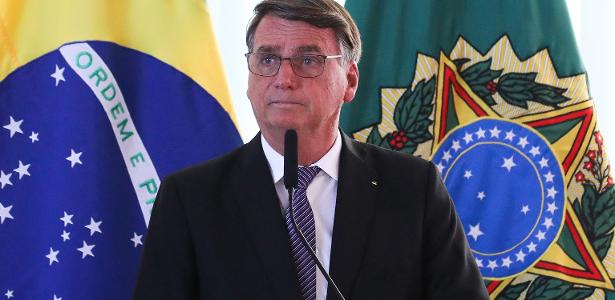The Sixtieth Session of the Summit of Heads of State of Mercosur and Associated Powers is taking place today (21) in Paraguay. This is the bloc’s first face-to-face meeting since the start of the COVID-19 pandemic. The event will end the provisionally pro-Paraguay presidency and start the state of Uruguay. On the same date, the Prosol meeting will also take place, the Forum for Progress and Development in South America, which was created a few years ago as an alternative to Unasur.
During the Mercosur leaders meeting, discussions are expected to include, of course, the Common External Tariff (TEC), regulatory issues and sectoral specificities. In addition, discussions should also guide the sustainability and energy agenda and infrastructure development.
You must sign an agreement to combat female killing between the bloc countries. It should also show a deepening of relations with other partners in the region, and beyond, with a particular focus on the legal review of the Mercosur-EU Association Agreement, which is experiencing a moment full of sensitivities.
Last year, when the bloc celebrated its thirtieth anniversary, President Jair Bolsonaro He advocated TEC modernization as an essential part of the process of restoring Brazilian dynamism. He spoke about the need to modernize the bloc and the importance of redoubling efforts in foreign negotiations to encourage innovation and attract foreign investment.
Nevertheless, in this area, Brazil is experiencing one of the many ambiguities regarding foreign policy. While professional diplomacy sews agreements in line with the country’s foreign policy traditions and makes it possible to sign important documents, as was the case with presidential declarations on defense cooperation, post-pandemic recovery and digital integration signed at the previous summit, for example, the CEO himself does not miss the opportunity to make clear the lack of political interest in this agenda. There is a huge gap between what the government says and what it does in this area.
Indeed, its work, both at the last summit and at this summit, is itself a manifestation of the lack of a sense of priority on issues of regional integration. The 59th meeting, chaired by Brazil, at the end of 2021, stipulated a return to face-to-face meetings. Days before the event, Bolsonaro’s government decided to change the event to a virtual format. This gesture caused great embarrassment and was considered by foreign interlocutors as a deliberate boycott by the Brazilian government, as the decision coincided with the visit of former President Lula to Argentine President Alberto Fernandez.
At this year’s event, the 60th meeting, Bolsonaro has decided not to go to Paraguay at all He claims “schedule problems in Brazil”. At the last minute, government sources informed that he is likely to participate by sending a pre-recorded video to show to other participants during the meeting.
Yesterday, the official agenda of the President of the Republic included meetings with Pedro Cesar Sousa, Deputy Head of Legal Affairs at the General Secretariat of the Presidency of the Republic. with Carlos Massa Ratino Jr., Governor of the State of Paraná; with Deputy Otoni DePaula (MDB/RJ); and the participation of the President in the opening of the 57th National and International Conference of the Casas da Bênção Churches, as well as some acts of punishment of PLs.
Today, in addition to another meeting with Pedro Cesar Souza, the president has only three more meetings: with two of his ministers and with Bruno Bianco, the attorney general of the Federation. Last night, the president went to the Mane Garrincha stadium to watch the match between Flamengo and Juventus.
In addition to the embarrassment of the successive protocol in the above-mentioned events, Bolsonaro’s relationship with the bloc has, in recent years, been marked by provocations and paradoxes regarding partners, as well as a major crisis related to the environmental agenda and its implications. A provocation in terms of questions of foreign relations for Mercosur.
Only in 2022, in the cumulative period until June, data from Itamaraty itself show that Brazil exported about 10.5 billion US dollars to the Mercosur countries. Brazil is the largest country in the bloc. It is the most populous, regionally extensive and economically important country in Latin America. And it was considered, until then, the most powerful driver of the interests of the region in the world. With Bolsonaro, he saw that character waning.
As on many other fronts of the country’s international accession, we face yet another leadership shortfall. In Paraguay, in 2022, we see once again that government policy builds opportunities to address state affairs.

“Music fanatic. Professional problem solver. Reader. Award-winning tv ninja.”






More Stories
Couple retakes glacier photo after 15 years, surprised by changes: ‘It made me cry’
Two killed in hotel collapse in Germany – DW – 07/08/2024
Lula speaks for half an hour on phone with Biden about Venezuela’s electoral impasse | Politics